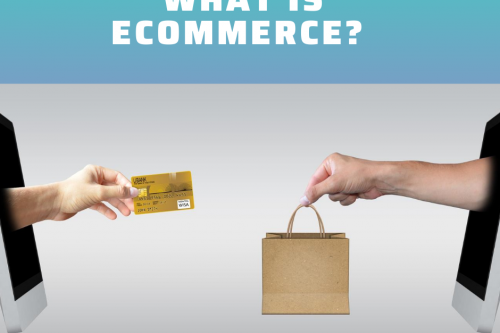Ecommerce: What is it and how to master it
Reading Time:
2 minutes, 47 seconds
Ecommerce: What is it and how to master it
Jumping Trout, LLC

(Big Commerce, 2020) Since COVID, ecommerce has been at the forefront of business plans as both small and large businesses restructure their revenue building. But what does that mean, why is ecommerce so important? We got some info from the experts to help you understand how to put ecommerce in your business plan.
What is it?
Ecommerce (electronic commerce) is the buying and selling of goods and services on the internet. This includes mobile shopping and online payment encryption and beyond. Ecommerce encompasses a wide variety of data systems and tools for online buyers and sellers.
Most businesses with an ecommerce presence use an online store or platform to conduct business and oversee logistics. There are actually six models of ecommerce that a business can be categorized into:
- Business to Consumer (B2C)
- Business to Business (B2B)
- Consumer to Consumer (C2C)
- Consumer to Business (C2B)
- Business to Administration (B2A)
- Consumer to Administration (C2A)
Ecommerce names include Amazon and Ebay, but small businesses can now join with the foundation of Square, Inc. in 2009 - and other online payment systems. Since then, online payments have become almost the primary way to shop!
Why is it important?
The impact of ecommerce is far and wide with a ripple effect on everything from small business to global enterprise and beyond.
Large retailers are forced to sell online. For many retailers, the growth of ecommerce has expanded their reach and increased their overall sales. But not everyone has hopped on board as quickly. For those middle retailers who haven't embraced the online marketplace, the impact of ecommerce has had the opposite effect.
Department stores have been hit the hardest, as les people are visiting large shopping centers like malls. As Amazon became more popular, Sears and Macy's saw decreased sales across the board.
This doesn't make Amazon the bag guy - at some point you have to adapt. Small businesses have actually been helped by ecommerce, allowing them to sell directly to customers. Even though it's been a slower adoption process for smaller businesses, those who have embraced it have discovered new opportunities. Gallup research shows that 2 in 10 small businesses have expanded their ecommerce presence over the last two years, and 11% say they plan to increase their ecommerce efforts in the coming year.
How to implement it:
Remember: Your customers aren't just buying your product, they're buying into an identity. For a small business looking to have an online presence, first impressions are important. Everything from your logo to your website to making payments needs to be seamless and make sense with your brand.
That's where you call us, of course, but there's always more to consider. In order to dive into the ecommerce sector, your business plan needs to adjust as well. The way you create revenue goals and track logistics need to also go online. The entire business needs to be updated to the 21st Century.
This may seem like a daunting task, but for a small business that wishes to keep a float, increased revenue from online sales might be worth a little work.
Source: https://www.bigcommerce.com/blog/ecommerce/#the-impact-of-ecommerce
What is it?
Ecommerce (electronic commerce) is the buying and selling of goods and services on the internet. This includes mobile shopping and online payment encryption and beyond. Ecommerce encompasses a wide variety of data systems and tools for online buyers and sellers.
Most businesses with an ecommerce presence use an online store or platform to conduct business and oversee logistics. There are actually six models of ecommerce that a business can be categorized into:
- Business to Consumer (B2C)
- Business to Business (B2B)
- Consumer to Consumer (C2C)
- Consumer to Business (C2B)
- Business to Administration (B2A)
- Consumer to Administration (C2A)
Ecommerce names include Amazon and Ebay, but small businesses can now join with the foundation of Square, Inc. in 2009 - and other online payment systems. Since then, online payments have become almost the primary way to shop!
Why is it important?
The impact of ecommerce is far and wide with a ripple effect on everything from small business to global enterprise and beyond.
Large retailers are forced to sell online. For many retailers, the growth of ecommerce has expanded their reach and increased their overall sales. But not everyone has hopped on board as quickly. For those middle retailers who haven't embraced the online marketplace, the impact of ecommerce has had the opposite effect.
Department stores have been hit the hardest, as les people are visiting large shopping centers like malls. As Amazon became more popular, Sears and Macy's saw decreased sales across the board.
This doesn't make Amazon the bag guy - at some point you have to adapt. Small businesses have actually been helped by ecommerce, allowing them to sell directly to customers. Even though it's been a slower adoption process for smaller businesses, those who have embraced it have discovered new opportunities. Gallup research shows that 2 in 10 small businesses have expanded their ecommerce presence over the last two years, and 11% say they plan to increase their ecommerce efforts in the coming year.
How to implement it:
Remember: Your customers aren't just buying your product, they're buying into an identity. For a small business looking to have an online presence, first impressions are important. Everything from your logo to your website to making payments needs to be seamless and make sense with your brand.
That's where you call us, of course, but there's always more to consider. In order to dive into the ecommerce sector, your business plan needs to adjust as well. The way you create revenue goals and track logistics need to also go online. The entire business needs to be updated to the 21st Century.
This may seem like a daunting task, but for a small business that wishes to keep a float, increased revenue from online sales might be worth a little work.
Source: https://www.bigcommerce.com/blog/ecommerce/#the-impact-of-ecommerce
Posted In:

